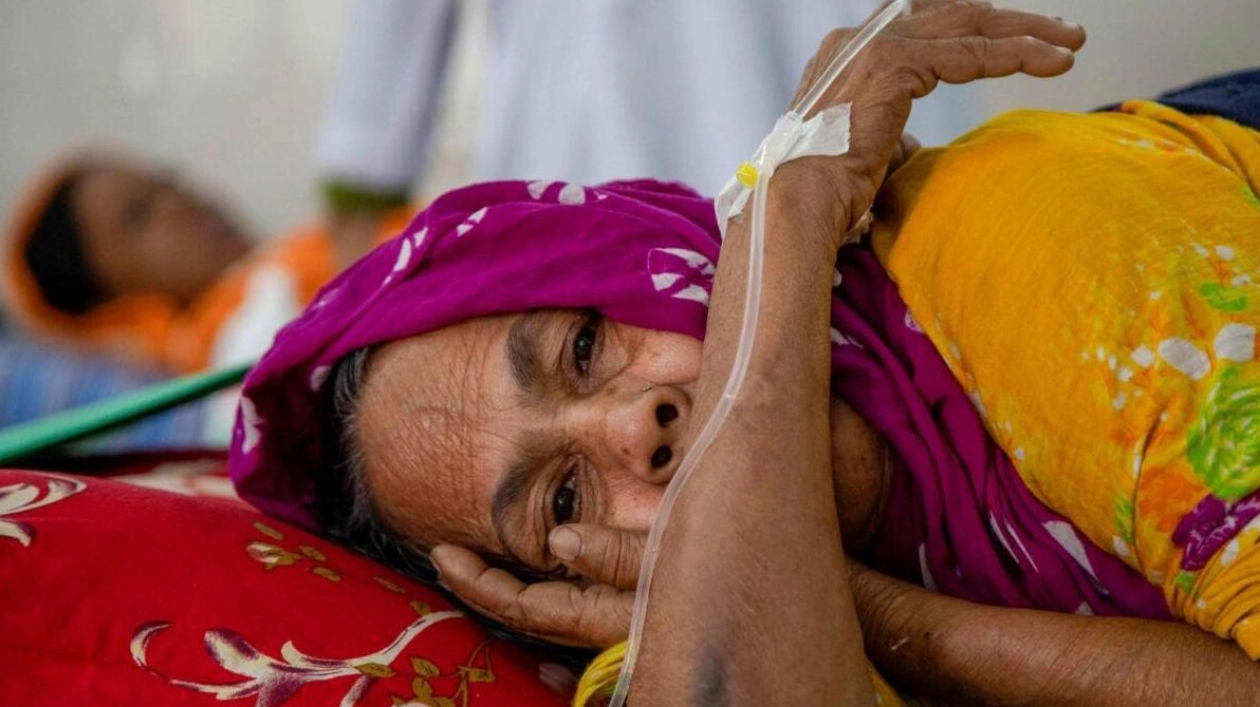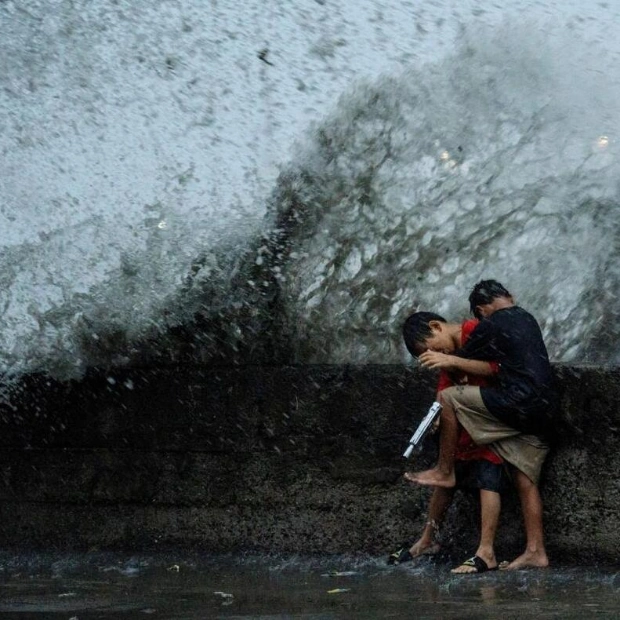An elderly woman suffering from dengue fever is receiving treatment at the Shaheed Suhrawardy Medical College and Hospital in Dhaka.
Climate change is responsible for nearly a fifth of the record number of dengue cases worldwide this year, according to US researchers. They aim to highlight how rising temperatures contribute to the spread of disease. Researchers have been working to quickly demonstrate how human-driven climate change directly impacts extreme weather events such as hurricanes, fires, droughts, and floods. However, linking global warming to health issues like disease outbreaks remains a relatively new field.
"Dengue is a particularly good disease to focus on because it is highly sensitive to climate," said Erin Mordecai, an infectious disease ecologist at Stanford University. The viral disease, transmitted through infected mosquito bites, causes fever and body aches and can be fatal in some cases. Traditionally confined to tropical and subtropical regions, rising temperatures have allowed mosquitoes to expand into new areas, carrying dengue with them.
For their study, which has not yet been peer-reviewed, a US team examined the link between higher temperatures and dengue infections in 21 countries across Asia and the Americas. On average, about 19% of current dengue cases worldwide can be attributed to climate warming that has already occurred, according to Mordecai, the senior author of the study. Temperatures between 20-29 degrees Celsius (68-84 degrees Fahrenheit) are ideal for spreading dengue. Areas in Peru, Mexico, Bolivia, and Brazil that will warm into this range could see dengue cases increase by up to 200% over the next 25 years.
The analysis estimates that at least 257 million people live in areas where global heating could double the rate of dengue during that period. "This is just another reason to care about climate change," Mordecai said. More than 12.7 million dengue cases were recorded worldwide by September, nearly double the 2023 record, according to the World Health Organization. However, Mordecai noted that under-reporting likely means the actual number is closer to 100 million.
The research was presented at the annual meeting of the American Society of Tropical Medicine and Hygiene in New Orleans. Another study, also not peer-reviewed, offers hope for a potential tool to combat the rise of dengue. It involves breeding mosquitoes infected with a common bacteria called Wolbachia, which can block the insect's ability to transmit dengue. Five years ago, Wolbachia-infected mosquitoes were introduced across most of the Brazilian city of Niteroi. During Brazil's worst-ever dengue outbreak this year, Niteroi saw only a small increase in cases, with numbers 90% lower than before the Wolbachia mosquitoes were deployed.
"This shows that Wolbachia can provide long-term protection against the frequent surges in dengue we're seeing globally," said Katie Anders of the World Mosquito Program. The researchers have partnered with the Brazilian government to build a Wolbachia mosquito production facility, aiming to protect millions of people.
Source link: https://www.khaleejtimes.com






